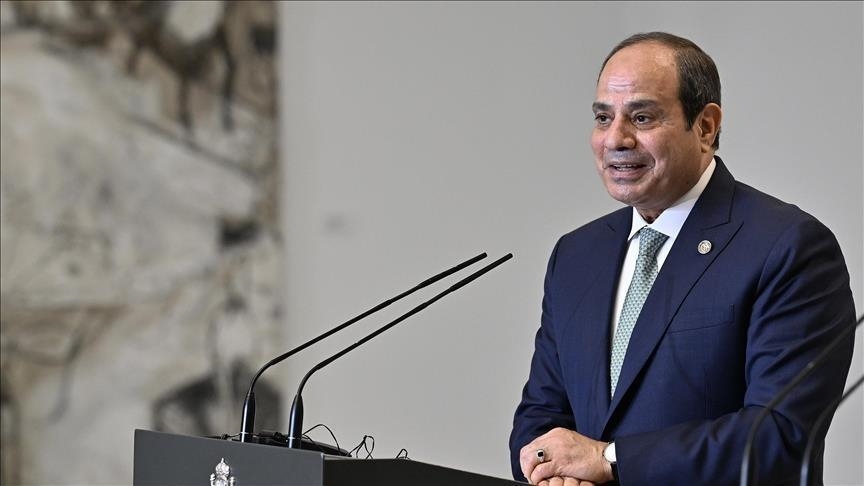Egypt’s president stresses importance of constructive dialogue regarding Iranian nuclear issue
Abdel Fattah el-Sisi highlights necessity to de-escalate during phone call with his Iranian counterpart Masoud Pezeshkian

CAIRO/ISTANBUL
Egyptian President Abdel Fattah el-Sisi told his Iranian counterpart Masoud Pezeshkian on Wednesday that parties to the Iranian nuclear issue must return to the negotiating table and engage in serious and constructive dialogue.
Sisi and Pezeshkian spoke over the phone according to a written statement from the Egyptian Presidency.
The statement noted that Sisi stressed the need "to de-escalate and contain tensions in light of escalation in the region, which calls for intensified joint action to enhance stability and confront attempts to undermine peace and security.”
He stressed the importance of constructive dialogue in order to reach a peaceful settlement that ensures regional security and avoids further escalation.
The Iranian president in turn thanked Sisi for his efforts and patronage to bring Iran and the International Atomic Energy Agency (IAEA) closer, praising Egypt's key role in paving the way for constructive dialogue.
Pezeshkian noted that these efforts led to the agreement signed in Cairo on Tuesday which re-establishes cooperation between Iran and the IAEA following months of mediation by Egypt.
On Saturday, Iran’s permanent representative to the United Nations confirmed that Tehran had restarted negotiations with the UN nuclear watchdog.
Iran suspended cooperation with the IAEA in early July, following US and Israeli attacks on the country in June, accusing the nuclear watchdog of bias against Tehran.
Iran was engaged in Oman-mediated nuclear negotiations with the US when Israel launched a surprise attack on Tehran on June 13, targeting military, nuclear and civilian sites as well as senior military commanders and nuclear scientists.
Tehran launched retaliatory missile and drone strikes, while the US bombed three Iranian nuclear sites. The 12-day conflict came to a halt under a US-sponsored ceasefire that took effect on June 24.








